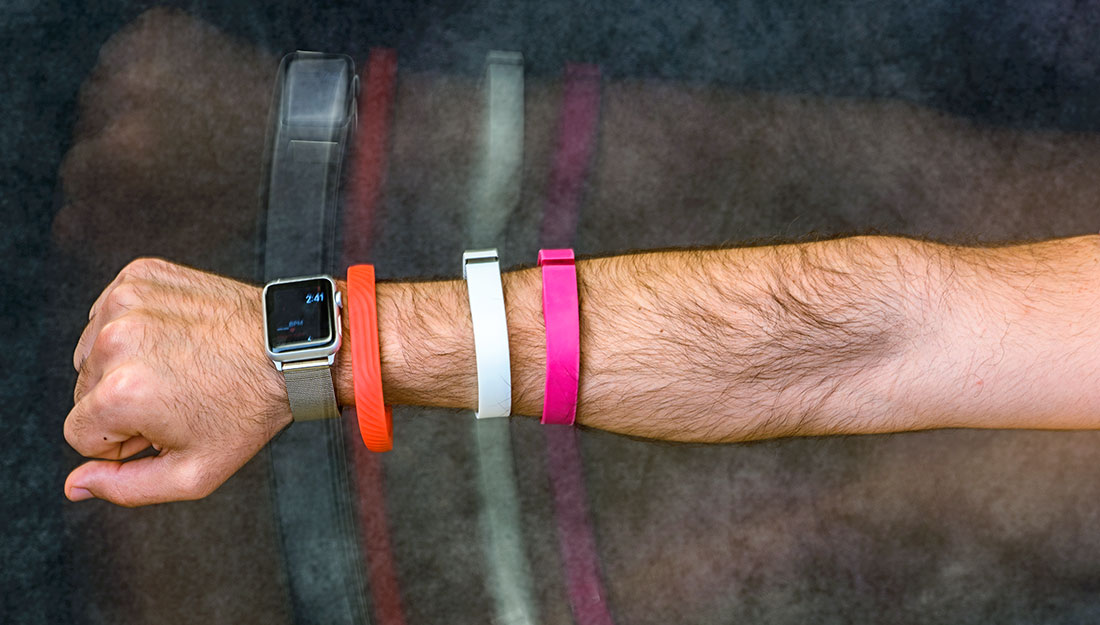- Christina Sumners
- Public Health, Research, Show on VR homepage
Health trackers of the future: Trends and technologies for monitoring health remotely
Various health monitoring devices can already be linked to electronic health records, and they will probably soon become accurate enough to have real clinical use

Everywhere you look you see people with fitness trackers on their arms
Everywhere you look you see people with fitness trackers on their arms, monitoring the number of steps they take, the amount of sleep they get and even their heart rate. At the moment, these devices are mostly for fun, and health care providers aren’t regularly using the information the trackers gather, but what if wearable technology went one step further to actually monitor your health?
Electronic health records can already be linked to various monitoring devices, but some physicians are concerned that they’re not yet accurate enough for real clinical use. However, that will likely change before too long.
Although they will never replace nurses and physicians, there are already monitors that patients can wear in the hospital to relay their vital signs to health care personnel. Similar devices are also being used in research studies.
Mark Benden, CPE, PhD, associate professor at the Texas A&M Health Science Center School of Public Health, director of the Texas A&M Ergonomics Center and member of the Center for Remote Health Technologies and Systems, is one such researcher.
Benden is best known for his work on standing desks, but as part of that work, he uses wearable technology to monitor the benefits of less time spent sitting. These devices can measure eye movement, temperature, heat flux, calorie expenditure, galvanic skin response, thermal facial scans for stress, heart rate and even heart rate variability.
“A big area of research for all of this use of wearable tech is instrumented offices: desks and chairs to “know” us and intelligently interrupt our day for optimal health and productivity outcomes,” Benden said. “I suspect those will ultimately be customized for each person.”
The technology will also become better at voice recognition and will even be able to interpret the tone, volume and intonation of the voice to garner clues about the person’s state of physical and emotional health.
“Think of your computer in five years being able to ‘know you’ like a spouse or old friend does today,” Benden said. “If you are sad, no way you get that past a friend or spouse; they pick up on it and push you to improve your mood. Machines will soon do the same with health and performance. It will be like a personal trainer, life coach, MD, nutritionist and mom always paying attention to you.”
Like all devices, those that remotely monitor health can be hacked, leading to privacy concerns. Although it may not seem like a big deal if your heart rate or the number of steps you took that day became public information, as the devices get “smarter” and collect more data, security will become an increasingly important problem.
“I’m not sure yet if all this is good or bad,” Benden added, “but it is on its way!”
Media contact: media@tamu.edu


